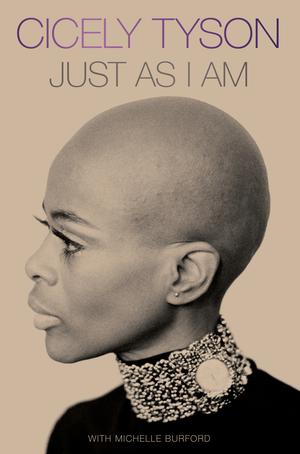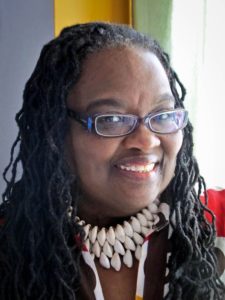The great model, actress and humanitarian Cicely Tyson died last week on January 28 at the age of 96. This unexpected news came right as the country is beginning to celebrate Black History Month. Tyson’s legacy is filled with historic roles and acts of resistance, as she refused to take on roles where the Black female was portrayed negatively.
In an interview with Gayle King that aired just days before her death on “CBS This Morning,” Tyson said: “Every one of us that looks like me are all not in a position of servitude. I don’t look for anything or ask for anything other than to be treated like a human being. That’s all.” She carried this sentiment with her throughout her career, as she played characters in powerful movie, television and stage roles, including “The Blacks,” “Sounder,” “How to Get Away With Murder,” “Fried Green Tomatoes,” “The Autobiography of Ms. Jane Pittman,” “Roots,” “The Help,” “Cherish The Day,” “Bustin’ Loose,” “Last Flag Flying,” and a number of Tyler Perry movies that included “Diary of a Mad Black Woman.”
Also during that interview, Tyson noted that she loved her ex-husband, the late jazz great Miles Davis, even though he battled drug addiction. They were married fewer than 10 years, and newspapers often reported on their tumultuous marriage. “He needed saving, and I needed someone to save,” Tyson said. She added that her mother didn’t want her to be an actress and called the entertainment industry “a den of iniquity.” In her memoir, titled “Cicely Tyson, Just As I Am,” she is quoted: “My art had to both mirror the times and propel them forward. I was determined to do all I could to alter the narrative about Black people – to change the way Black women in particular were perceived, by reflecting our dignity.”

In PBS’ American Masters “How It Feels To Be Free,” which highlighted the groundbreaking careers of Tyson, Lena Horne, Diahann Carroll, Abbey Lincoln, Nina Simone and Pam Grier, Tyson said: “I thought it was time for a Black woman to appear on screen as a human being, rather than as a barbie doll, sex symbol or addict. All of the things that we have been forced to deal with in the past few years on film.”
During the early 70s, Tyson said that Black actresses were considered only Black actresses and not considered just actresses. “That limits my ability to work.” She added that she had the reputation of working every few years, because she was selective in the roles that she would take on. When she was interviewed during the “Sounder” press junkets, Tyson said that a white journalist made a point of telling her that he never thought a Black couple could relate to each other outside of it just being sex or lust. She added: “So that meant that the journalist didn’t view Blacks as humans.”
The Crusader reached out to Professor Gerald Butters of Aurora University and author of “From Sweetback to Superfly: Race and Film Audiences in Chicago’s Loop” about the influence of Blaxploitation films in the entertainment industry and Tyson’s legacy. “Sounder” and “Lady Sings the Blues” were two of the largest grossing films in Chicago in 1972-1973. “Sounder” literally play- ed for over six months at various Chicago theaters. Both movies came out during the beginning of the Blaxploitation cycle of movies, he said.
“I don’t know if Black Chicago audiences differentiated these two films from Blaxploitation films, but they were certainly representative of a deluge of films starring African Americans. Black-themed motion pictures were among the largest grossing films in downtown Chicago from 1971-1975. African American audiences came to Loop theaters in droves because for the first time in history, there was a large body of films starring African Americans. Cicely Tyson changed my life – and I mean that literally. I was a 13-year-old boy in Kansas watching ‘The Autobiography of Miss Jane Pittman.’ I went to the bedroom and cried my eyes out. I then watched ‘Sounder,’ and the shot where she is running toward Paul Winfield was a master class in acting. And then there was ‘Roots.’ Want to know why I got into this field? —this remarkable woman.”
A local award-winning writer, filmmaker, playwright, educator, and producer shared her memories with the Crusader of a chance encounter with Tyson on the North Side. “Decades ago, I had the pleasure of meeting Cicely Tyson at the Transition Bookstore on Chicago’s North Side while she was browsing for books. I don’t know why she was in town, but I immediately recognized her and introduced myself telling her I was meeting with my writer’s group in the store’s café,” said Pamela Sherrod Anderson, Graceworks Theater and Film Productions founder.
“I remember her patience and grace, and her beautiful dark eyes of curiosity as she then asked about my writing, and her encouraging words to me not to give up ‘keep going.’ I was teary then and teary now in remembering her words and grateful that she didn’t rush away from me because of her celebrity or importance. Instead, she was as giving of herself as she was known to be through her acting. Her passing now leaves us with the beautiful spirit from her art that will continue to encourage, inspire, and lift us for generations.”
Other condolences came in from around the country. Tyson played Viola Davis’ mom in “How To Get Away With Murder,” and she tweeted: “I’m devastated. My heart is just broken. I loved you so much!! You were everything to me! You made me feel loved and seen and valued in a world where there is still a cloak of invisibility for us dark chocolate girls. You gave me permission to dream.”
Director Ava DuVernay tweeted, “Your hugs I’ll remember. How your petite arms wrapped around me like mighty branches of a sunlit tree, strong and warm. Your love I’ll remember. You loved me for some reason and told me often. Thank you, Your Majesty. And bless you as you journey ahead. Until we meet again…”

And Midwest-based actor George Sample III shared with the Crusader the influence that Tyson had on his career. “She was much more than an actress and entertainer. Through many decades, Ms. Tyson has exemplified true excellence in her craft. My earliest memory of seeing Ms. Tyson was watching her role in the 1977 critically acclaimed “Roots.” The sincere emotions I watched her perform in this film have always stuck with me.” Sample, who has starred in the films “Goldie” and “The Hunter Gatherer,” among others, feels a void in Black film royalty. “One word that certainly suits Ms. Tyson is… ICON.”
Tyler Perry told People Magazine: “My heart breaks in one beat, while celebrating her life in the next. To think that she lived for 96 years, and I got to be a part of the last 16 brings me great joy. She called me son. Well, today your son grieves your loss. Always so regal, always so classy, always a lady, always a queen.”
In one of her last Twitter posts, Tyson remained humble about her success: “The glitter, the ribbons, the garnish I’ve experienced during my life—as wonderful as those things are, I have little desire to reflect on them solely. What I am far more interested in is the tree that represents my life and strength and condition of its roots.”
Chicago native Harry Lennix Jr., who stars in NBC’s “The Blacklist,” shared with the Crusader his thoughts about Tyson’s early influence. “When I was a young fellow, I remember sitting with my family, in awe of a television movie about a woman named Jane Pittman. It was a historical fiction, but somehow, I wanted her to be real. It seemed so true. It WAS true, since the actress playing the character insisted it was so—through her utter mastery of the form and subject.”
Lennix, who has also starred in “The Five Heartbeats,” “The Matrix” and “Ray,” continued: “It marked the very first time that I became aware of greatness in acting. A world of possibilities opened up for me then. Among the stunning revelations was that the genius playing the title character had also broken my heart in ‘Sounder,’ a movie I saw in a theater. Was this possible? The genius was Cicely Tyson. How had she done it? Aging and emoting so believably, she emerged as my idol without my knowing what acting was—that it was alchemy and invention—mostly a kind of courage. For this I shall forever venerate the great Cicely Tyson, whose name might just as easily have been ‘Cicely the Titan.’
And I am by equal measure grateful that magnificent acting is the key to immortality. Take wings, dearest Queen! It’s time for your bow.”
Cicely Tyson was born in New York City in 1924 to parents who were originally from Nevis.
Tyson’s career spanned more than seven decades; she was the recipient of three Primetime Emmy Awards, four Black Reel Awards, one Screen Actors Guild Award, one Tony Award, an honorary Academy Award in 2018, and a Peabody Award. President Barack Obama awarded her the Presidential Medal of Freedom in 2016.
Reportedly, Tyson had an earlier marriage to Kenneth Franklin, which ended in divorce and produced a surviving daughter, whose name Tyson kept secret (calling her “Joan” and “my beloved princess” in her memoir).


Elaine Hegwood Bowen, M.S.J., is the Entertainment Editor for the Chicago Crusader. She is a National Newspaper Publishers Association ‘Entertainment Writing’ award winner, contributor to “Rust Belt Chicago” and the author of “Old School Adventures from Englewood: South Side of Chicago.” For info, Old School Adventures from Englewood—South Side of Chicago (lulu.com) or email: [email protected].






